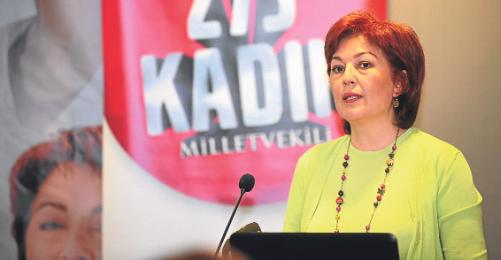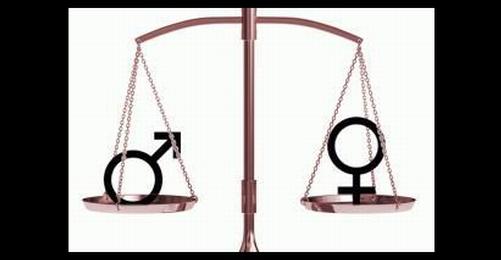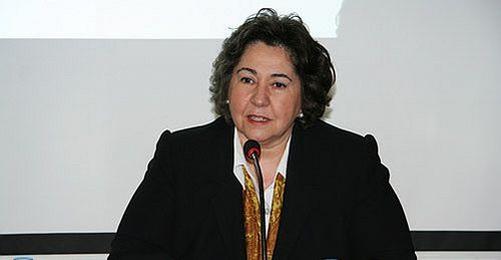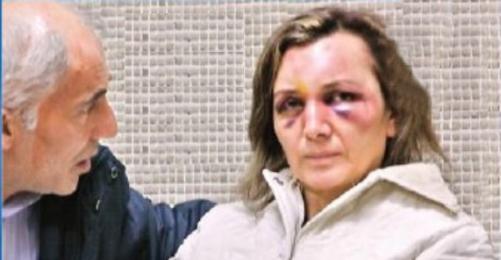Dr. Cengiz Aktar a specialist on Turkish-European Union relations is of the opinion that recent " European Union (EU) - Turkish Joint Parliamentary Committee (JPC) meeting ends up without any concrete results."
Headed by EP deputy Daniel Cohn Bendit an EU delegation this week visited Ankara in order to discuss Turkey's record in accomplishing the long list of reforms which condition Turkey's accession to full EU membership.
Shadowed by the EU-Turkey dispute on Cyprus' accession to the EU prior to Turkey's the JPC meetings have resulted no visible progress in the EU-Turkey relations. Turkey categorically rejects the accession of the de facto divided Cyprus' accession in the EU unless a solution is reached to satisfy the Turkish demands in the island.
Whereas the EU, albeit praising amendments in the Turkish constitution in the direction of broader freedom of speech is however dissatisfied of the present pace of progress alongside urging for the accession of Cyprus Republic in the union notwithstanding Turkish military presence in the Turkish north.
Turkey is adopted as an EU candidate since December 1999 EU Helsinki summit and has committed itself to adapt Turkish legislation to conform the "Copenhagen Criterii" a basic condition to be fulfilled in order to start negotiations for full membership.
"The June meeting didn't bring any concrete results either. That's why the only thing that can be said is that it doesn't matter on what level the Turkey-EU relations are or how strong they are, the JPC's power is actually always as strong," Dr. Aktar told bianet.
Dr Cengiz Aktar broadcasts weekly radio programs on the EU on Istanbul based Acik Radio and national TV channel NTV and teaches at Istanbul's Galatasaray University on the EU's enlargement process. Aktar answered bianet's questions.
What is the Joint Parliamentary Committee?
The Joint Parliamentary Committee (JPC) is a consultative body between the European Parliament and national parliaments. Here there is a free debate and no executive decisions are taken. Turkey's JPC was founded in 1970 with the signing of the joint protocol. For Turkey this is a very old institution. But, when Turkey was accepted as a candidate by the end of the year 1999, its status has changed.
In the JPC there are 12 European parliamentarians and 12 Turkish counterparts. The Turkish parliamentarians come from both the government and from among the opposition parties.
The JPC gather every 6 months and are once hosted by the EU either in Luxembourg or in Brussels and once by Turkey.
What is the function of the JPCs?
There are JPCs in all candidate countries, not only in Turkey. The most important function of these committees is to bring together a wide range of opinions both from within the European Parliament and the national parliaments to represent different groups and nationalities. In this understanding, the JPCs don't cover one singular viewpoint, but all sorts of opinions.
The function of the JPC in the enlargement process is to put together problematic topics related to enlargement, which means problematic topics between the candidate country and the EU, to seek solutions on a parliamentary level, to create public opinion and to offer solution proposals. These solution proposals are put forward by the JPCs to the Partnership Council, which serves as the executive body, thus play a constructive part in the process.
One of the most important fields of interest for the JPCs is the political dialogue. This political dialogue is not simple talk as many might believe, but as observed in this present instance is also a useful mechanism for the JPCs.
How are the Turkish JPC meetings going along?
During the past two years the Turkish JPC meetings have been working totally in the form of a dialogue of the deaf. There are very different reasons for that. But let me give you an example. The Turkish side, from the beginning, spent efforts that Cyprus issue should be excluded from the JPC agenda. These efforts were successful until this latest meeting, but in this meeting Cyprus became the single point of the agenda.
When we look at all these topics that were considered by the JPC, we see that up until now only political issues have been their focus. The meetings held so far have moments of displaying irreconcilable attitudes rather more than providing a chance for dialogue.
Turkey's JCP, contrary to the JPC in other candidate countries is yet to present any constructive proposals for solution
And the latest meeting?
In the latest meeting the Cyprus question in an explicit manner was brought on the agenda. This meeting, again, passed in an irreconcilable manner. It is hardly likely that one can say that it helped the political dialogue and served Turkey in the pre accession process.
From the EU point of view this meeting can be qualified as a touristic winter visit to Istanbul. It was of no use.
The European parliamentarians in the Committee, when coming to Turkey every six months, have a meeting with the local civil society representatives. I don't think that these meetings were of any use either. Here, the known topics are repeated again and again. The European side takes notes, but then nothing happens. No concrete steps are taken.
Why?
The reason for this is that within the JPC there is no joint opinion. The European parliamentarians and the Turkish parliamentarians are at diametraically opposite positions. The Turkish co-chairperson is Kürsat Eser, an MP of the Nationalist Action Party and a retired army officer. The European co-chairperson is Daniel Cohn-Bendit, a European Green politician. Starting from such a basis unfortunately no clear decisions are arrived at.
Then what is to be done?
Now, in order to help this JPC function properly it would need to set up a whole bunch of new consultative sub mechanisms. In this framework the function of the JPC should be reconsidered. Because, it does not work.
How could these sub mechanisms look like?
What we need is not institutions who deal with enlargement as such, but new mechanisms which aim at forging out correct answers to tough questions and work for that purpose.
In my opinion this should be based on two major directions. One is that we need to develop a communication strategy directed at Turkey, at the Turkish public opinion and at the European public opinion. Secondly, this communication strategy should be refined and detailed with a particular eye on certain interst groups. European public opinion should come to an understanding of what this country, Turkey, really is, and the Turkish public opinion what the EU is.
Doesn't the Turkish public opinion know what the EU is?
In my opinion it doesn't know at all. Everybody has an idea, but about the topic what the EU process is, what the accession process is, Turkish public is absolutely insufficiently informed. Further the politicians and political figures are also uniformed of. In this country all together a handful of people work for the EU membership. One of the functions of the JPC definitely is to attract the attention of the parliament for this process. As a result, there are 12 Turkish parliamentarians in the Committee, but we can't say that the JPC has performed this function.
Could you define the sub mechanisms you have mentioned?
Very abstractly, I can say that we need "ad hoc" structures. There is the need for more frequent committee meetings. But with that I don't mean physical gatherings. Just, between the committee members there is the need for different communication means, to understand and listen to each other. In particular the Turkish side needs this.
Conclusion: In the recent JPC meeting not a single clear decision could be taken. In the June meeting no clear decision had been arrived at either. That's why the only thing that can be said is that: "The functioning of the JPC can only as efficient and strong as the EU-Turkey relations are."









